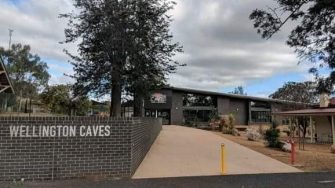
Synopsis
Not long after the Covid-19 virus closed all Australian and New Zealand show caves, the Australasian Cave and Karst Management Association (ACKMA) took the opportunity to establish baseline show cave climate conditions in the absence of visitors. Fifty QP 6013 temperature and relative humidity loggers were cross-calibrated, including temperature calibration against a Fluke reference standard thermocouple. The project was enthusiastically embraced by the Australasian show cave community, with loggers shipped to 17 participating cave and karst management organisations across Australia and New Zealand. Since June 2020, forty-four loggers have been collecting climate data at 10 minute intervals in 27 caves: one logger is placed outside the cave or caves to collect local external climate data, and other loggers placed inside each cave to assess natural cave climate variability and the potential effect of tour groups. The caves being monitored are, in Australia: Calgardup Cave, Jewel Cave, Mammoth Cave, Ngilgi Cave, Lake Cave, Crystal Cave, Yonderup Cave (WA); Capricorn Caves, Donna Cave, Trezkinn Cave (Queensland); Careys Cave, Jersey Cave, Jillabenan Cave, Gaden Cave, Cathedral Cave, Phosphate Mine (NSW); Gunns Plains, Marakoopa and King Solomons (TAS); Kelly Hill (SA); Shades of Death Cave (VIC). And in New Zealand: Footwhistle, NgaRua, Nikau, Mangawhitikau and Te Anau caves. These data are available for Honours projects.
Aims
Project aims could include (1) assessing the natural variability of cave climate of these Australasian show caves, and (2) assessing the impact of tourism related to the return of a limited number of visitors to many of the caves in recent months. Some fieldwork to visit the caves would be possible, and this project could suit inter-state students who could work with a local show cave. Basic numeracy and statistical skills would be an advantage, and further training would be provided.
Student benefits
You will receive training in various aspects of data science (data handling screening and management), time series analysis and hands-on environmental monitoring skills (data download, equipment maintenance, field calibration), and working with industry partners.
Supervisor: Prof Andy Baker
